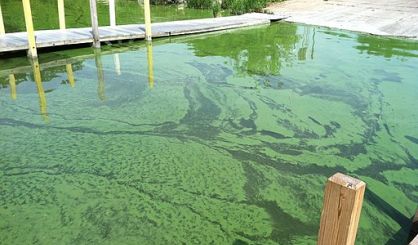
Bigger, more frequent storms; more floods. Many millions in financial losses. Massive environmental shift. Climate change already is causing these issues in the Great Lakes region – and it’s expected to get worse, according to a new report.
Eighteen experts from research institutions in the U.S. and Canada contributed to the report from the Environmental Law and Policy Center in Chicago, and they concluded that if the federal government isn’t willing to take action, states need to take the lead to prevent or mitigate the worst effects. University of Illinois Professor and lead author of the report Don Wuebbles said climate change is taking weather occurrences to the extremes.
“Extremely warm days – greater than 90 degrees or 100 degrees – are likely to increase significantly over this century,” Wuebbles said. “Precipitation has increased by almost 10 percent, and this is leading to an increasing concern about flooding like those we’ve had in the Midwest in recent weeks.”
The report said the lakes’ ice cover already is thinner and melting earlier in winter. They predicted crop yields for corn and soybeans will decrease by 10-30 percent by mid-century in the southern part of the Great Lakes region because of increased spring flooding and summer heat.
Last week, President Donald Trump’s Environmental Protection Administration administrator Andrew Wheeler downplayed climate change, saying the worst effects are 50-75 years away.
Professor Brad Cardinale from the University of Michigan said increased algae blooms will close more beaches and threaten drinking-water supplies. And he said the region will need to upgrade sewer systems to prevent overflows that could release pathogens into the environment.
“Climate change is going to put a financial stress on important industries like agriculture and increase the cost of commerce and shipping,” Cardinale said. “Two: climate change is going to force Great Lakes states to make costly upgrades to their infrastructure systems. And three: climate change is increasing public health risks throughout the Great Lakes.”
The report urged farmers to cut the amount of fertilizer in their runoff, which fuels toxic algae. And the authors say states can slow climate change by switching to renewable energy, pushing energy-efficiency programs, and upgrading city fleets to electric vehicles.





